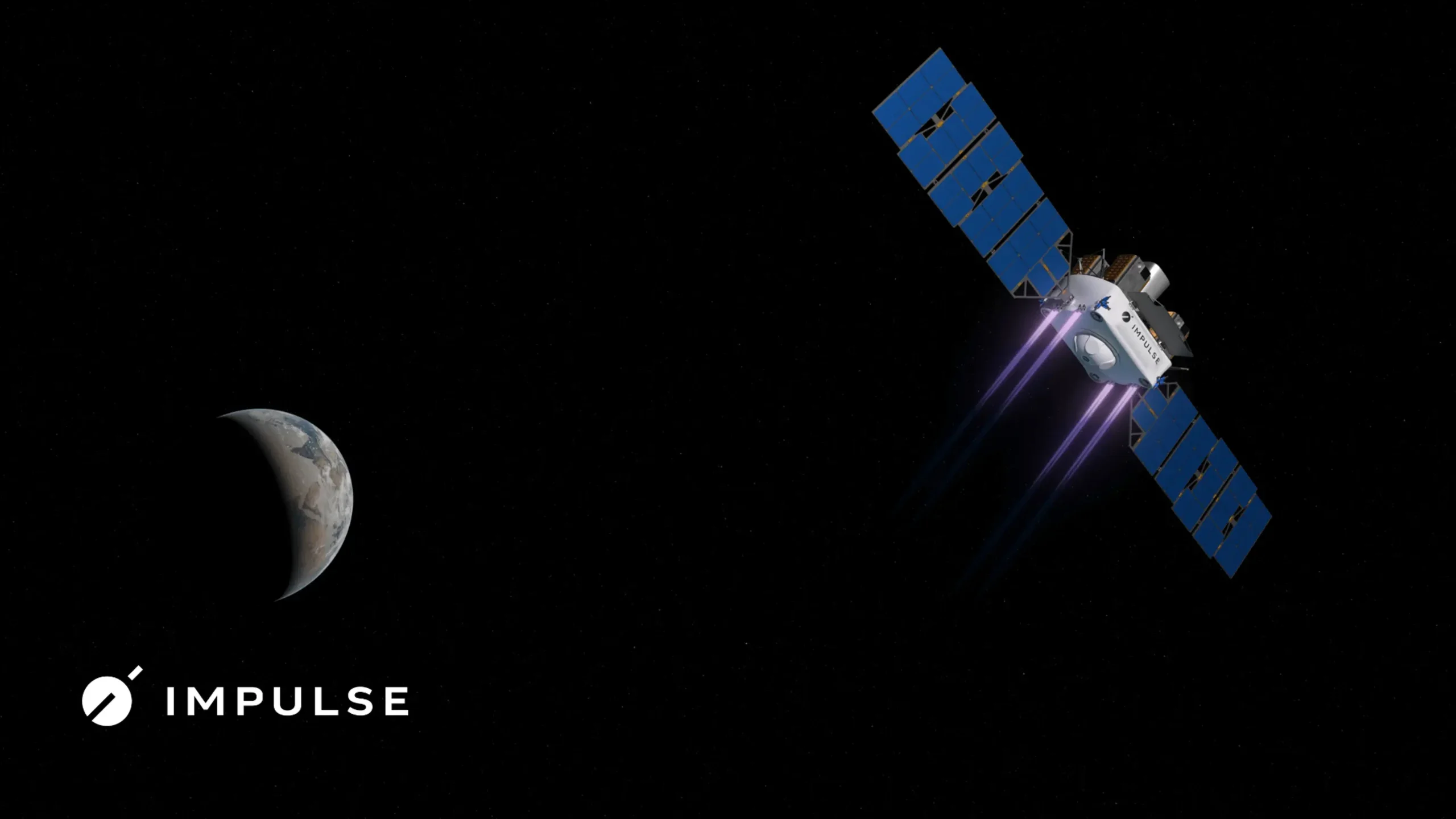Latest News

Photo: Impulse Space
The U.S. Space Force’s Space Systems Command (SSC) on Thursday awarded Impulse Space a $34.5 million contract for two tactically responsive space (TacRS) missions in 2026 for space domain awareness and dynamic space operations.
One mission, VICTUS SURGO, involves the first launch into Low-Earth Orbit (LEO) of Impulse Space’s Helios high-energy kick stage, which will be carrying the company’s Mira V2 orbital transfer vehicle into Geosynchronous Transfer Orbit (GTO). Once in GTO, the spacecraft can maneuver under its own power to another orbit like Geosynchronous Earth Orbit without relying on the launch vehicle, which in this case will be a SpaceX Falcon 9.
The Defense Department’s Defense Innovation Unit (DIU) is a co-sponsor of VICTUS SURGO. The Mira satellite will carry a commercial off-the-shelf optical payload and DIU will have a rideshare slot on Helios.
The DIU rideshare payload will be delivered to GEO as a demonstration of novel responsive space delivery.
SSC’s TacRS demonstrations are all about speeding the delivery of missions to, and in, space.
“DIU purchased the Impulse slot because it provides more timely access to GEO than traditional approaches,” a DIU spokesperson told Defense Daily. “This fits with the rapid timelines that DIU operates on. We have not yet selected a payload. We may utilize that slot for either an emergent need that requires a ride to GEO on relatively short notice or one of several other existing payload options.”
The second mission, dubbed VICTUS SALO, will launch a Mira satellite aboard a SpaceX rideshare and carry a government payload developed by the Massachusetts Institute of Technology Lincoln Laboratory.
Impulse said its Mira vehicles feature an updated design that allows operations in GEO. In August, the California-based company introduced the new design, which includes radiation hardening, improved avionics, and a more robust power supply.
In August, the company introduced the newly designed Mira, saying it provides “a reliable, high delta-v vehicle for missions requiring enhanced maneuverability and rapid repositioning.” The company uses a non-toxic chemical propulsion capability that it says offers more thrust than electric propulsion systems are typically capable of to be able to move more mass more quickly through space.
Impulse Space is led by Tom Mueller, who was a founding member of SpaceX and designed the Merlin engine. The company raised $150 million in a Series B round.
SSC said that SURGO and SALO both have a modular interface to speed and ease and integration and test of new payloads. Once on orbit, both missions will allow rapid space domain awareness missions, it said.
In addition to the domain awareness demonstrations, both missions give users the chance to develop new tactics, techniques, and procedures as part of dynamic space operations as situations change and the spacecraft are maneuvered accordingly, Impulse said.
SSC’s Space Safari program office awarded the Small Business Innovation Research Phase III contract to Impulse.
“The collaboration with Impulse, MIT LL, and many others further enables our ability to rapidly integrate, deploy, and operate on tactically relevant timelines,” Col. Bryon McClain, SSC program executive officer for space domain awareness and combat power, said in a statement.
SSC has already conducted one TacRS mission, VICTUS NOX, and is preparing a second, VICTUS HAZE. The successful VICTUS NOX mission launched in September 2023, showcasing a launch-ready status within the 24-hour goal of launch notice and then lift off within hours of the launch window opening (Defense Daily, Sept. 15, 2023). That satellite for that mission also achieved checkout and operational readiness within 37 hours after launch, beating the goal by 11 hours.
In April, SSC selected two companies for separate efforts under VICTUS HAZE, with Rocket Lab and True Anomaly slated to provide their respective systems by no later than fall 2025. The company’s satellites will be used in rendezvous and proximity operations to counter “irresponsible” adversary behavior on orbit, SSC said at the time.
Get the latest Via Satellite news!
Subscribe Now